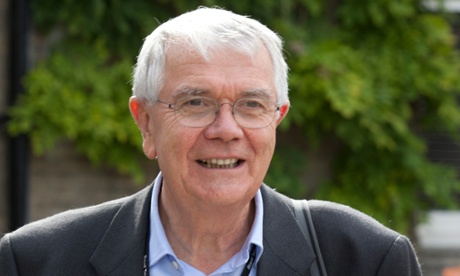Terry Burns, the outgoing chairman of Channel 4 and a former Treasury mandarin, has condemned the government’s plans to privatise Channel 4 as of “little financial benefit” and questioned the culture secretary’s handling of the job since the election.
Lord Burns said a sell-off of the state-owned, commercially funded broadcaster would neither raise much money nor improve the market, the only “two possible reasons for privatisation”.
“I don’t believe the Treasury are terribly interested in privatising Channel 4 because they want the money, when they have got an enormous number of assets which are available to be sold,” he said in an interview with MediaGuardian.
“It’s very difficult to see what the financial benefit is for the government, whereas it is possible to see some of the harm that could be created for the whole creative sector in the UK.”
Analysts estimate that a sell-off of Channel 4 could raise £1bn but the value depends on whether the broadcaster must continue to fulfil a public service remit that includes encouraging the independent sector and focusing on harder-to-reach audiences such as minorities. The government is looking to reduce public debt by £32bn this fiscal year.
“The reason that Channel 4 works so well is because we run this whole place focused around the remit,” said Burns, who is to leave after six years in January. “My hesitation about privatisation is whether you can achieve this mixed remit.”
Burns, a crossbencher who has backed the government in the House of Lords, refused to say that the continued interest in privatisation was ideological. Some in government, he said, “seem to believe that you can retain the remit for Channel 4 while privatising it”.
In August the culture secretary, John Whittingdale, told TV executives in Edinburgh: “The remit of Channel 4 is a priority and it’s not going to change.”
Burns presented his own proposals for Channel 4’s future to the government in September. The plans to turn it into a company limited by guarantee would remove it from state ownership while keeping its not-for-profit status.
Yet shortly after this, a civil servant accidentally disclosed that the government was keener on privatisation than previously thought, revealing a paper that read: “Work should proceed to examine the options of extracting greater public value from the Channel 4 corporation, focusing on privatisation options in particular.”
Last week David Cameron confirmed in parliament that privatisation was under consideration, and in recent weeks Channel 4 has been asked to provide financial information as part of possible sell-off exercise.
Burns had agreed to extend his contract past the usual six-year term, but the government quickly rejected his plans to turn Channel 4 into a company limited by guarantee. Burns said the situation had been badly handled, as Ofcom had first proposed the extension soon after the election in order to provide continuity while the government focused on renewing the BBC’s charter.
Burns was critical of Whittingdale. “I would put it no further than he is still in the early days of being a secretary of state and he has got a certain amount to learn,” said Burns, who in 1980 was appointed chief economic adviser to the Treasury and head of the Government Economic Service by Geoffrey Howe.
Later he said: “I think too many kites are flown. There is too much chatter about things that have got to be rigorously analysed before giving an opinion on it.”
Because primary legislation would be needed to privatise Channel 4, both the prime minister and the chancellor, George Osborne, would need to be convinced that a sell-off would warrant the controversy.
Burns believes there is still much to play for. “When you’re a minister the test is what happens when you’ve looked at the options and analysed them and come to make decisions. Ministers get judged by their decisions, not by what they say.”
In a statement this year, the DCMS said: “The government has made no decisions regarding reform of Channel 4. Channel 4 has an important remit and we are looking at a range of options as to how to continue to deliver this, including options put forward by Channel 4.”
Burns defended the government’s decision to review the freedom of information legislation introduced 10 years ago, saying the supreme court decision to allow publication of the Prince of Wales’s so-called spider letters had called into doubt the governmental powers of veto.
“There is an argument that [this decision] has made the operation of the veto very difficult … They set up this inquiry to see whether could get the balance back to the way parliament intended.”
He defended the lack of press freedom campaigners among the inquiry panel members, saying that a membership largely made up of civil servants and former ministers included “people who have had experience doing those things”.
He said the inquiry must consider the burden of requests. “There are an awful lot of public sector bodies through the length and breadth of the country who are pretty fed up with the burdens upon them.”
Asked whether he believed in open government, he replied: “I do.”











